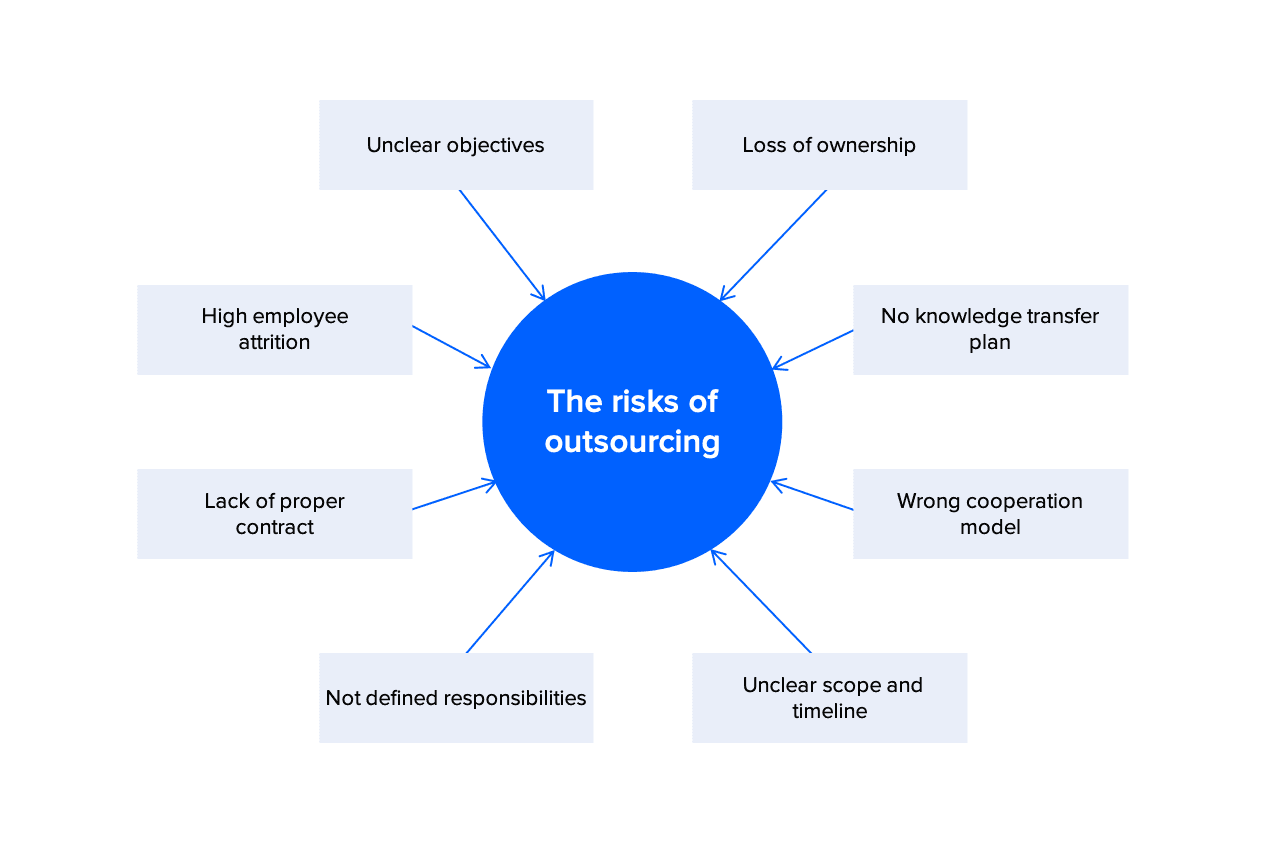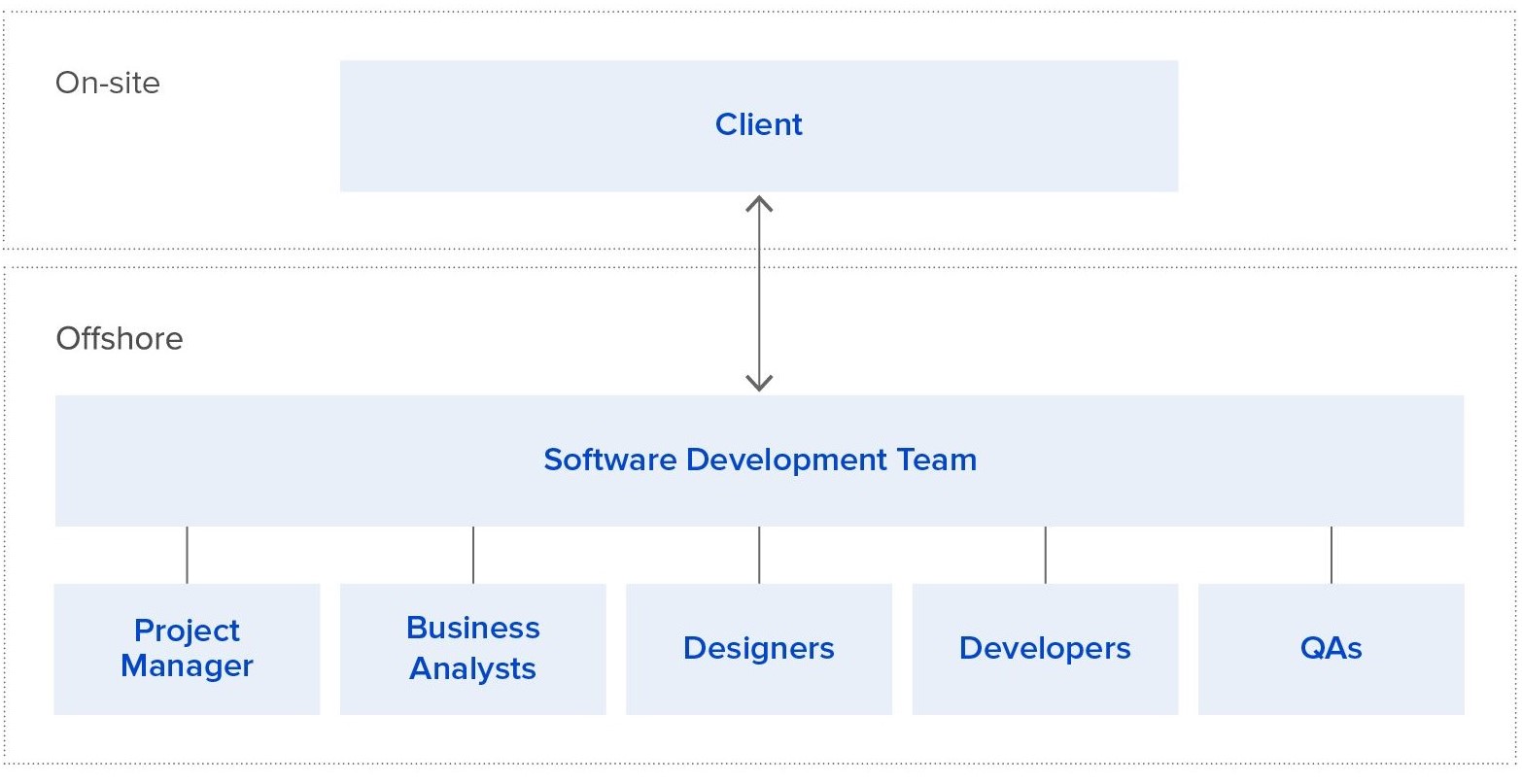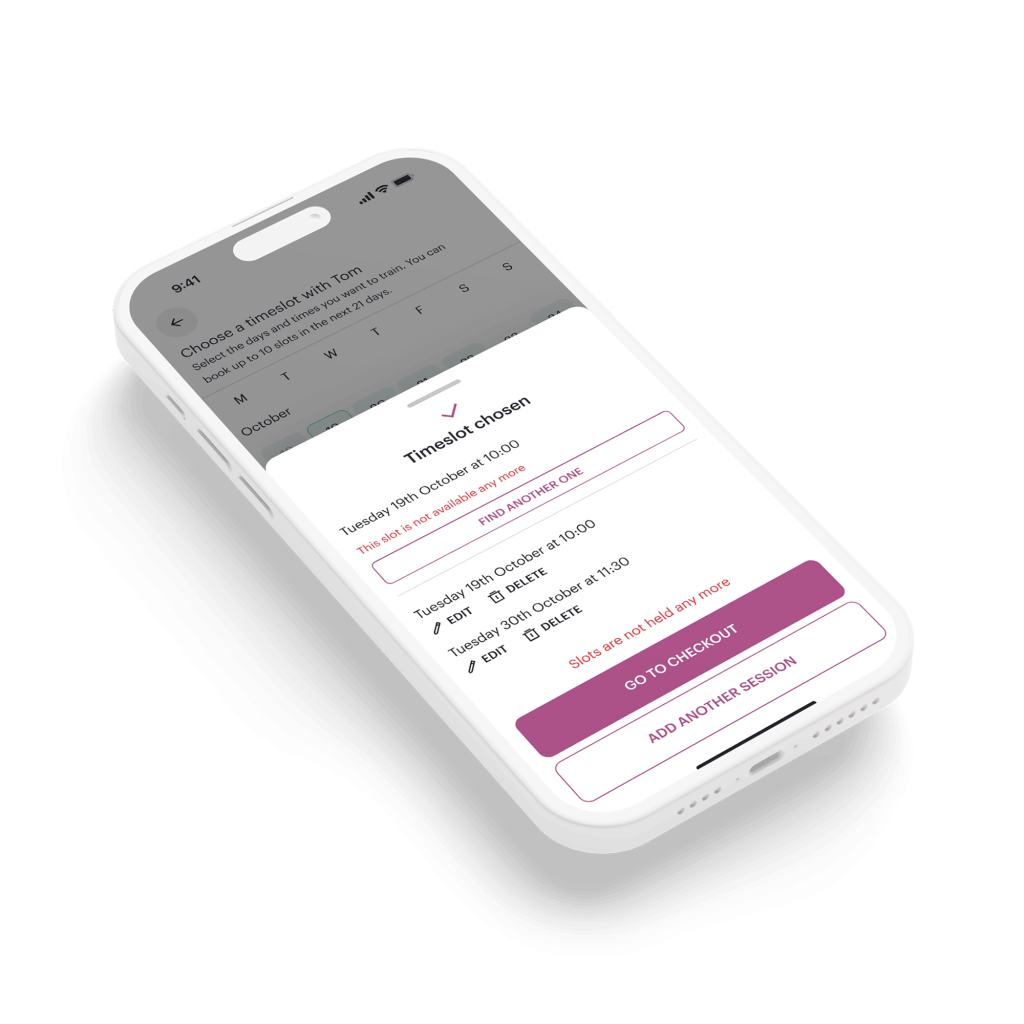
Businesses who outsource their software development expect to realize important rewards, such as cost savings (often up to 50%), optimization of in-house team performance, the introduction of specific skill sets, shorter time to market, etc. To ensure a successful outsourcing partnership, keep in mind the risks of outsourcing that can sabotage your project’s effectiveness if not handled correctly.

Starting off with unclear objectives, scope and timeline
Your outsourcing partnership needs purpose. This means, from the outset, defining:
- your reasons for outsourcing,
- how you see it affecting core business and
- how it will ultimately add value.
Next, ask yourself: do you want to lower costs or do you want better scalability, faster time-to-market or all of the above? Your ultimate objective/s need to be crystallised before you start looking for a vendor.
Without that strategic clarity, any potential vendor will be working blind. So, in much the same way as you’d engage your in-house employees, your outside partner needs a well-defined set of responsibilities, goals and project milestones – with the understanding that they’ll be measured against these at regular intervals throughout the process. Before development begins, be sure to establish any necessary objectives for the vendor to follow.
What’s more, without a proper plan to determine your outsourcing initiative, you risk skipping essential steps, such as proof of concept. As a result, you may be building an app that nobody needs or wants — which could have been identified during the product design phase.
Also, nothing can kill the momentum of a project more so than a lack of definition as to the project scope. Questions your outsourcing provider must answer with clarity:
- What are the exact deliverables?
- Who provides project oversight and what is that person’s expected duties?
- What are the specific obligations of each party?
A rock-star level outsourcing team provides laser focus for timeline/deliverables expectations. Make sure to analyse the prospective provider’s approach to creating a clearly defined contract. Is the proposal bold and precise in laying out the process? Make sure both sides are clear about all the above items before you sign on the dotted line.

Choosing a wrong cooperation model
Once you’ve found a vendor to deliver the job and established goals, responsibilities and strategy, you’ll need to decide on the cooperation model that best fits your organisation and the project at hand. The cooperation model you choose should be based on what you want to achieve and whether you need additional resources/skills to meet that requirement – as well as your budget, timeline, scope and level of ownership you feel comfortable giving to your vendor. Team location is also important. To make your choice you should consider the benefits and the drawbacks of the nearshore vs offshore model.
The cooperation model of choice should depend on the rationale behind outsourcing a software development project. The motivations behind also influence how outsourced software development teams are structured.

Here’s a blog post to help you build a high-performing outsourcing team: Offshore Outsourcing Challenges Part 1: How to Hire an Effective Team
Giving up ownership and knowledge
One of the first questions that needs to be answered at the beginning of any cooperation is ‘who owns what?’. Do you want your vendor to take care of the project end-to-end, or do you feel more comfortable retaining a higher level of control?
Without clear boundaries, there’s a risk of misunderstanding and crossover. There’s also the issue of accountability for project successes and failures – how do you provide feedback where there’s ownership uncertainty? Once the lines of responsibility are drawn, get to know your vendor’s key point of contact and define a robust end-to-end communication process, then meet the team you’ll be working with, via an initial kick-off meeting.
The other important thing you should consider is employee attrition. When working on a software development project, one knowledge holder walking away can have a serious effect on the overall outcome. Take proactive steps up-front with your vendor to discuss employee attrition management. Many software companies offer an 18-month rotation as a regular practice to minimise the impact of attrition. Regular planned rotation helps your people gain new experience, you can enable a proper knowledge transfer, keeping your subject expertise in your team.
If you want to learn more about the best practices for knowledge transfer in outsourcing projects, check out our recent blog post: Outsourcing Challenges Part 3: Building a No-fail Knowledge Transfer Plan for IT Projects
With careful planning and the right vendor relationship, the value added by outsourcing digital initiatives can be immense. From significantly reducing IT costs to putting you ahead of the technological curve and delivering outstanding user experiences.
With more than 600 end-to-end projects delivered, ELEKS offers almost three decades of next-level outsourcing experience. The ELEKS team consists of more than 1,500 experts tackling the toughest business challenges for our clients with custom software engineering and consultancy services that create new growth opportunities. For more information, contact our outsourcing experts.

Related Insights











